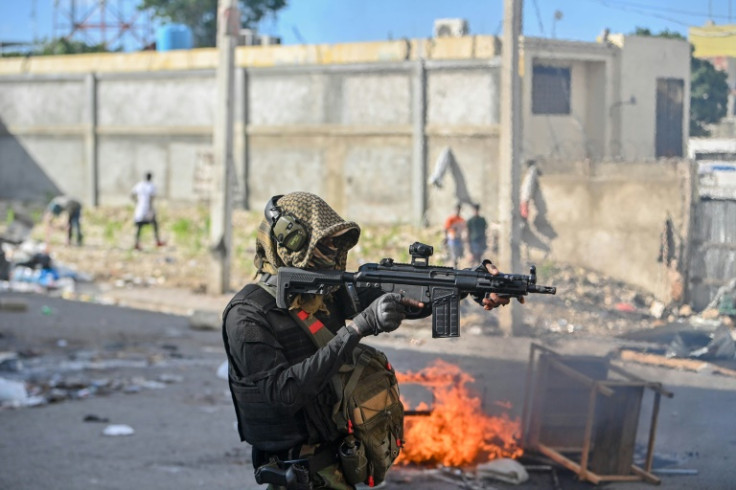
Haitian criminal gangs are becoming financially stronger, a criminal research group based in Geneva has warned in a report, revealing that the gangs are using funds obtained through private entities, residents, and kidnapped victims to purchase weapons and pay soldiers.
"Gangs have undergone a radical evolution, going from rather unstructured actors dependent on resources provided by public or private patronage to violent entrepreneurs," according to the report by Global Initiative Against Transnational Organized Crime, as reported by Reuters.
"These entities are nowadays far more economically autonomous and territorially powerful, making them less controllable," the report added.
It featured anonymous interviews with politicians, police, aid workers, businessmen, and residents across the country, warning that these gangs pose numerous challenges for the international force backed by the United Nations (UN).
The international force was requested by Haiti's unelected government in October last year to assist its under-equipped police and address the ongoing humanitarian crisis in Haiti.
The UN Security Council showed a green light to the international force aimed at supporting Haitian authorities last year, noting that the deployment will take place after nine months and will last a year.
The force will support Haiti's national police force, as the latter does not have enough resources or funding. There will be 10,000 active officers who will help ensure the safety of the Latin American country's 11 million citizens.
In addition, Kenya volunteered to send 1,000 police officers to Haiti. Other countries, including the Bahamas, Jamaica, and Antigua and Barbuda, have also vowed to send security operatives to help Haiti.
The report states that business owners in Haiti are forced to pay gangs up to $20,000 per week, as well as a percentage on containers coming from ports. Sometimes these businessmen are also forced to help gangs in arranging arm delivery.
Moreover, the gangs also collect up to $8,000 daily from checkpoints and to make the process faster, they have also introduced weekly cards for people crossing the checkpoint daily.
The report suggested that the international forces should secure Haiti's land and sea route to prevent these gangs from stocking up more weapons in the country.
© 2025 Latin Times. All rights reserved. Do not reproduce without permission.







